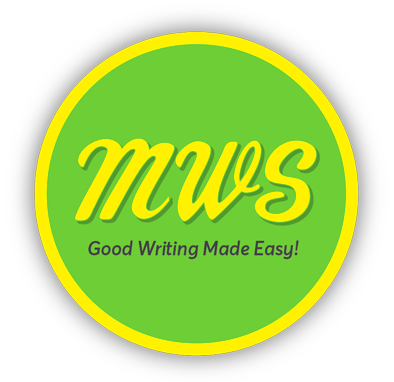The Power of the Personal Statement
The personal statement is usually the most dreaded aspect of the application process and yet it's the most important!
It provides you, the applicant, with the opportunity to share with your future professors, employers, and scholarship-givers that you are indeed a real person with unique aspirations, gifts, joys, and experiences.
When you write a personal statement you're letting the folks reading it know that you're ready for the opportunity they're offering. You're proving that you're not just ready in the sense of academic preparation but ready with the right mentality, goals, and personality.
Chances are if you're applying to that degree program, job, or fellowship that yes you're doing it for the academic and professional opportunities that it'll provide. But you're also probably applying because you're interested and maybe even passionate about the work. You believe that the opportunity will put you on track to furthering the goals you have for yourself and maybe those goals are even altruistically bigger than yourself. Maybe you're genuinely interested in bettering your family, community, and the society around you.
I've revised hundreds of personal statements and as a result I've met hundreds of passionate and driven students and yet most of the personal statements I look at--at least when they're first shown to me--don't reflect that enthusiasm. At all.
In other words, most of the folks I encounter are intelligent and highly engaged students who will doubtlessly benefit whatever institution or job they apply to and yet their personal statement is written in a way that none of that will be communicated to the admissions committee. This greatly decreases their chances of acceptance even if their numbers (their test scores and grade point average's) are up.
So how do you write an effective and engaging personal statement that ups the odds of your application?
The personal statement is hard to write because it's on the weird cusp of being a professional document while also being a personal document. We're taught to exclude ourselves when we're being professional. In school, we're taught to stick to the third person and never say "we" or "I" unless you have a good humanities professor! So then when it's time to write a document like a personal statement we're like a fish out of water.
How do you keep an academic and professional tone while talking about yourself?
The personal statement should be thought of as a personal narrative. It's a story that you're weaving and like every story there is a specific purpose: illustrating your readiness to get into that institution/ job/ fellowship.
Make it interesting. And that's easier than it sounds. Think of it as explaining the 'how's' and 'why's' behind the 'what's' and the 'when's'. This is the difference between a well-done personal statement and merely having a resume that's typed up in paragraph form.
Why do you want to get into that program? How will that program help you to further your life goals and passions? Why are you drawn to that particular program? What courses do they offer that speak to you? What professors work there who match your research interests? What has prepared you for this job opportunity? What will you bring to the work place due to your unique background and heritage?
Answering questions like this is the difference between a boring, run-of-the-mill personal statement and a dynamic one that will make admissions committees more forgiving about low or average test scores or grade point average's.
Lastly, the personal statement is the time for beautiful writing. Think like a fiction writer. Your writing should feel effortless and be engaging and descriptive. It should catapult the readers into your world, into your head.
This means that you should take your time with it. Allow your ideas to marinate. Give yourself enough time that you can write a paragraph here and there and let it sit for a few days until picking it up again to write another few paragraphs.
Also, meticulously edit. I'm a professional editor so my job is to fix people's writing according to all of the idiosyncrasies of the English language. But a lot of writing mistakes can be caught by the author if they take the time to re-read their own work. But a lot of us like to procrastinate.
Procrastination becomes easier to conquer when you realize that it's less about laziness than it is about fear. The personal statement is daunting so many applicants leave it until the last moment. But it's because it is daunting that it should be the first thing that's tackled on the applicant to-do list.
In summary, the personal statement is a story that you're telling to an admissions committee. It isn't a recapitulation of your resume. Also, since the personal statement is a story it should be beautifully written. This is accomplished when you give yourself adequate time to write it and also dedicate time to self-editing.
What tips do you have for writing a powerful personal statement?
~ Danielle
